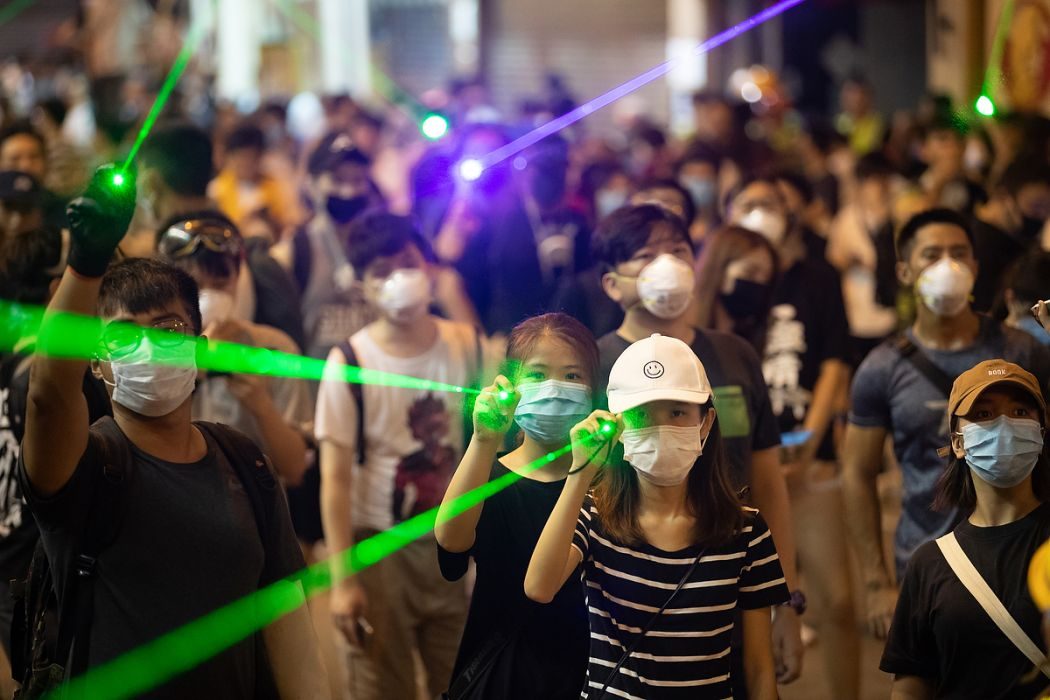The number of arrests arising from the 2019/20 protests has now exceeded 10,000, a staggering number by any standards.
In addition, arrests and prosecutions relating to the 2014 Umbrella protests are still underway, adding considerably to the total of politically-related prosecutions.

In the last 15 months, the police have nabbed more than twice the number of people arrested during the city’s Cultural-Revolution-inspired riots of 1966/7. Yet back then, 51 people died, injuries were widespread and there was a very real fear of a complete collapse of order.
It should be noted that these arrest figures have been supplied by the police. So far, prosecutions have been undertaken in around 20 per cent of cases.
Hong Kong is rapidly moving to pole position in the world league of political arrests on a per capita basis.
What is astonishing about the number of arrests is how they compare with data available for the number of political prisoners on the mainland. A database compiled by the United States’ Congressional-Executive Commission on China estimated that in the entire period 1981 to 2018 there were 9,116 cases involving political prisoners on the mainland. The Commission freely admits that this figure is likely to be an underestimate.

Although the comparison with the situation is eye watering, it is not a like-for-like comparison because the mainland figures are for people who have been jailed whereas the Hong Kong figures are for arrests. On the mainland, anyone arrested for politically-related reasons will axiomatically be found guilty and jailed. This is not the case in Hong Kong, although the ratio of convictions for protest offenses is rapidly rising.
Notwithstanding this vital caveat, the comparison is, to put it mildly, surprising. All the more so as Hong Kong has not yet descended to the level of a fully-fledged dictatorship.
However, the signs are ominous as the police have evidently been given free rein to pick up more or less anyone they want. At times, this enthusiasm for arrests is farcical as in the case of charging a bus driver for possession of a spanner as an offensive weapon (although second thoughts have now kicked in), or in earlier cases of classifying laser pointers in the same category. Tackling a 12-year-old school girl to the ground while she was out shopping near the site of a protest, combines farce with serious concerns over whether any level of restraint still binds the police force.

The police have now also empowered themselves only to brief ‘trusted media’ when it suits them to do so and have unilaterally decided that reporters are justifiable targets of arrest and assault when they are covering protests.
And there is more. A magistrate targeted for removal by the blue camp for alleged leniency in dealing with protestors has been removed from his duties and shuffled off to a bureaucratic role.
I was going to write that Hong Kong is rapidly acquiring all the trappings of a police state, but, lamentably, this is not so because trappings hardly describes where we are now.
What follows from all this is interesting and worrying on a great many levels, but one in particular deserves consideration: what will happen as the jails fill up with political prisoners?

A first, obvious consideration is whether there will be enough space for what looks like a flood of prisoners heading for incarceration. Many of them will be there for very long periods of time as sentencing has traditionally been harsh in Hong Kong, and it is getting harsher as the Department of Justice presses for ever longer jail sentences.
Secondly, what will happen to all these people once they are inside? There is strong evidence from history here, not least from the experience of jailed Communists prior to the Chinese Revolution. The lesson is that concentrating very large numbers of dissidents in jail turns the jails into schools for rebellion.
Nelson Mandela often said he learned more in prison than anywhere else about resistance to an oppressive regime. Much of what Mandela learned laid the basis for his extraordinary success as a national leader who, when he emerged was as keen on reconciliation as he was to see change in South Africa.

Whether Hong Kong’s jails will give birth to another Mandela remains to be seen. Meanwhile, there is no reason to suspect that the new generation of political prisoners will be fermenting revolution. Yet there can be little doubt that it will be simply impossible to lock up the number of dissidents that the authorities wish to see behind bars without the atmosphere in the jails changing.
The one thing prisoners have in abundance is time and an opportunity to think, even in the most dire of circumstances.
Correction 20:50: A previous version of this op-ed incorrectly stated that the 12-year-old girl was arrested.
Support HKFP | Policies & Ethics | Error/typo? | Contact Us | Newsletter | Transparency & Annual Report | Apps
Help safeguard press freedom & keep HKFP free for all readers by supporting our team
| HKFP is an impartial platform & does not necessarily share the views of opinion writers or advertisers. HKFP presents a diversity of views & regularly invites figures across the political spectrum to write for us. Press freedom is guaranteed under the Basic Law, security law, Bill of Rights and Chinese constitution. Opinion pieces aim to point out errors or defects in the government, law or policies, or aim to suggest ideas or alterations via legal means without an intention of hatred, discontent or hostility against the authorities or other communities. |

More HKFP OPINION:
HKFP has an impartial stance, transparent funding, and balanced coverage guided by an Ethics Code and Corrections Policy.
Support press freedom & help us surpass 1,000 monthly Patrons: 100% independent, governed by an ethics code & not-for-profit.










